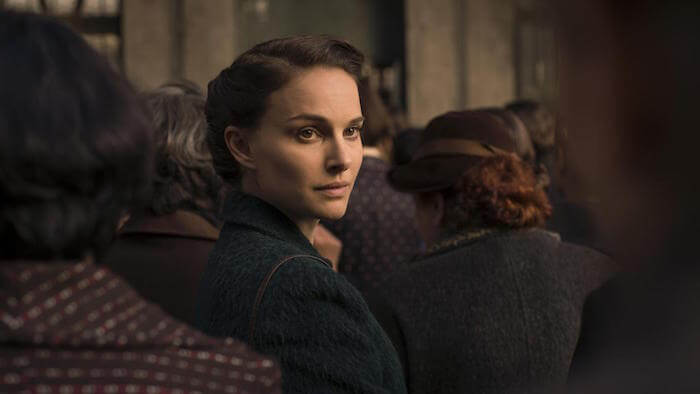Mother Tongue: A Tale of Love and Darkness

A Tale of Love and Darkness
Directed by Natalie Portman
Opens August 19
Despite the enormous popularity of Amos Oz’s autobiographical novel A Tale of Love and Darkness, director Natalie Portman ran into resistance trying to make her $4 million adaptation, in no small part because she insisted the film’s dialogue be entirely in Hebrew. Her insistence reflects her passion for the project as well as her ties to Israel, her country of birth, and her Jewish identity as she lives in an increasingly anti-Semitic Paris. But it also figures directly into the adaptation, which plays as something of a love letter to storytelling, the Hebrew language and by extension to Israel itself.
A recurring motif throughout A Tale of Love and Darkness sees the adult Amos playing word association games in voiceover, something he learned from his scholarly father, beginning when he links “Kadima,” meaning forward, to “ancient times” through its root “kedem.” Such details would be lost in any other language and reveal cultural specificities of linguistics and storytelling to be the film’s overriding concern rather than politics. While A Tale of Love and Darkness depicts the end of Mandatory Palestine and the subsequent 1948 Palestine War that ended with the founding of Israel, politics are largely ignored: Amos observes in voiceover that Arabs and Jews were pitted against each other by powers that oppressed them both, but the finer points are evaded in favor of relating a personal story.
That story sees Portman aptly juggling multiple voiceovers as she splits the story into two distinct points of view: Amos’s and that of his mother, Fania (played by Portman herself). Portman understandably takes more of an interest in the latter, though the details seem to get away from her. Fania falls into a depression (handled gracefully by her husband and son) conveyed largely by sitting down and staring emptily, and it ends nearly as suddenly as it begins.
While the elusive plotting hinders the story’s power, Portman proves herself a director with a keen compositional eye, and one comfortable with integrating flashbacks into narrative. She evokes childhood with similar proficiency, making the film’s earlier sections particularly gripping. A Tale of Love and Darkness might not say quite what it wants to, but that’s because it has so much on its mind. As far as problems go, it’s a good one to have.
You might also like 



















